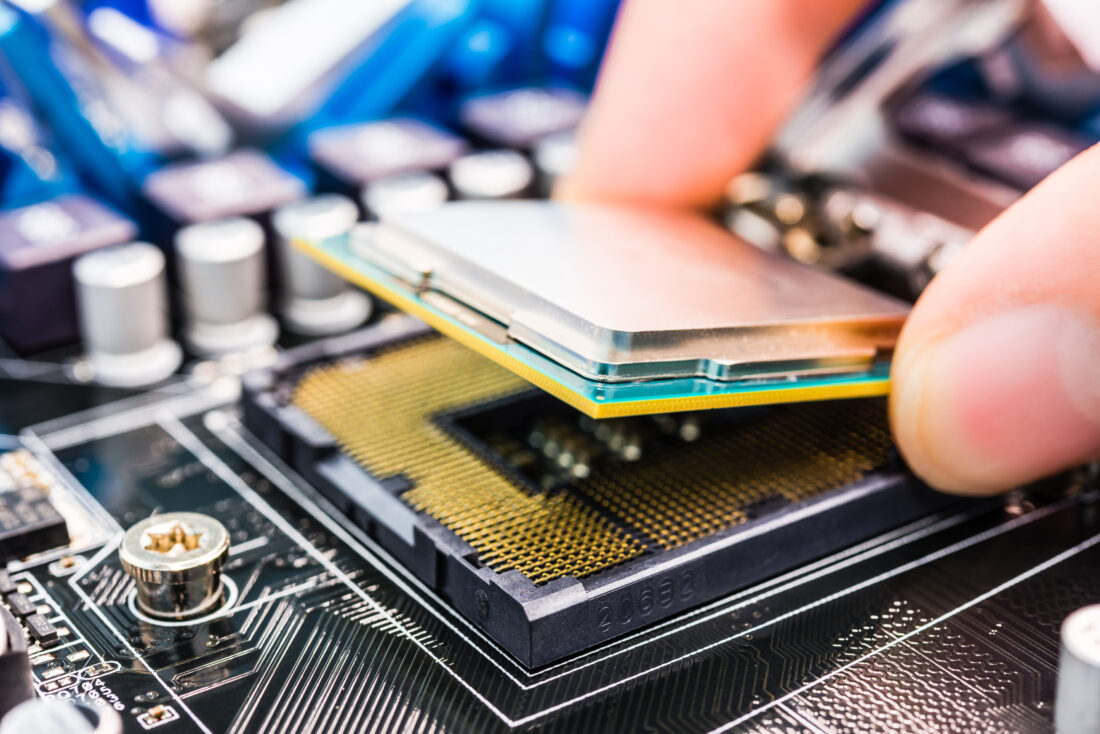
Frank Chen will make you a believer in AI

After publishing a primer on AI, Deep Learning, and Machine Learning, Andreessen Horowitz Partner Frank Chen learned that his particular area of expertise was suddenly more in demand than ever. (Or at least, he learned that people were excited to have complex concepts explained in clear, straightforward language). Since then, Andreessen Horowitz has published an AI Playbook designed to explain these concepts in greater depth to novices. We sat down with Frank to ask him about the state of AI, whether it can live up to the hype, and how both startups and large companies can succeed in the AI space.
What is the state of AI as we head into 2018? What is AI’s potential in the next year? Five years? Ten years?
AI has been around for 60 years since the Dartmouth Workshop in the summer of 1956. There have been boom and bust cycles, so much so, that there’s a name for the busts: “AI winters.” Depending on how you count, there have been 6-8 of those. Right now, we are in an AI spring. Enthusiasm from investors and operators is very high.
There a lot of things that fall under what we call “AI.” There’s visual recognition, voice recognition, identifying objects, and making predictions. Many of these applications are powered by a specific machine learning technique called deep learning.
You can think about there being three kinds or stages of AI. There’s “narrow AI,” which can solve very specific kinds of problems. It can play a board game, or it can predict whether or not a customer is going to churn, it can figure out what’s in a picture. There’s “general AI,” which is basically what we think of as human intelligence. Can it learn new things? Can it pass the Turing test? That is, if a human is interacting with it, will the human know that they are dealing with a machine rather than a human? Then there’s “Super AI,” which Elon Musk is warning us about, in which the machines move far past humans. All of the success you read about in AI has been in “narrow AI”, and the results have been spectacular. We don’t have a unified apporach towards general AI yet—we just don’t know how to get there. And until have General AI, it’s too soon to worry about Super AI. The way Andrew Ng puts it, worrying about Super AI is a bit like worrying about overpopulation on Mars. Someday it might be a problem, I guess, but first, let’s put the first person on Mars.
As to where enterprises should be: the narrow vs. general vs. super AI debate is actually academic. Even if they shut down all the research centers around the world today and no more innovations happened with AI algorithms or data structures, we have a long, at least 10-year roadmap of how to add AI to all our software. That is, given what we know now, there’s a ton of enhancements that organizations can make with their software so that it can have conversations, recognize what’s happening in pictures and videos, make better predictions, and so on. We just need to implement the known techniques.
Is AI overhyped? Or does it have significantly more potential impact than anything else?
So, there are definitely going to be investors who do not make money on AI given how much is being invested today. But I see AI today as like databases in the 1980s: it will get inside all the software and become an essential part of just about every company.
There is no denying that enthusiasm is at an all-time high. But just because there is a lot of hype doesn’t mean there isn’t something very real and very useful here.
There are a few key areas I see AI being used more and more. There’s visual recognition. AI can recognize objects pretty well at this point. You can open your phone up, search for “beach” and there are all the photos you have from the beach.
There’s natural language processing, which is the ability to understand human language. One of the most immediate applications is an area called sentiment analysis, in which the AI can judge from a person’s speech how they are feeling. Companies should be applying this to customer service so that nobody ever says “I want to speak to your manager” again on a call. The AI can sense better than a human when somebody is getting angry and ready to escalate far better than a human can, and it should automatically do that. But even beyond that, companies are sitting on these huge stores of data: they all record customer service calls for legal reasons, but if they can apply a few simple techniques, they can get so much value out of their data. WIthin the medical field, even, there are huge possibilities. Researchers at this point can use neural networks to look over transcripts and medical data to more accurately identify someone as a suicide risk. It’s potentially life-saving.
Then there’s predictions. I think this will become more powerful as companies are able to combine data sources. They can take their data from Mixpanel and combine it with their analysis from the customer calls, customer support, and use that to make more accurate predictions about customer behavior.
And finally, autonomy. My view is that everything that moves will go autonomous. That means cars, trucks, trains, shopping carts and the rest. The AI is, or is going to be better at these tasks than humans are.
What advice do you have for startups and investors who want to build a successful AI company?
At this point, just about every startup I see claims to be an AI startup. So the question is: is that because they are using the technology in an innovative way, or because their CMO told them that was what they have to say? So my advice to entrepreneurs is: don’t get tripped up on the easy questions. When I ask, “What machine learning techniques are you using?” don’t respond, “The best ones, I’m sure.”
But this will flip. Andreessen Horowitz has been around eight years. Early on in our life, the hot thing was cloud-native, then it was mobile-first. And each of those was a sea change, moving from on-premise to in the cloud, and from desktop-first to mobile-first. In not too long, it will just be assumed that every company is, in some respects, an AI company. Because if your company is not, that guy sitting next to you in Starbucks who is working on his startup that does make the most of this technology is going to pass you by.
So it’s the same as any other investment opportunity: I’m looking to see if a company is using technology to unlock value.
And what advice do you have for larger companies in the space?
I have two main pieces of advice: don’t be intimidated, and it’s not too late to start. You don’t have to boil the ocean. You can start small, with the easiest, lowest-hanging fruit. Pick ten areas where you believe this can help, and start working on it there. If you’re worried when you read about machine learning and AI experts getting paid NBA player salaries to join Google or Facebook, don’t be. You don’t have to be an innovator in the space. You can follow along to the best practices from other companies who view this as core to their business. You can have an employee take six-weeks and get a Udacity machine learning nanodegree, and they’ll be able to produce right away. Get a few employees doing that, and you’ll be able to start chipping away. Maybe it’s not your whole company, but if you pick ten or so areas where they can make the biggest impact, you will see a difference. Because large companies are sitting on these massive stores of data that they are not utilizing efficiently. And this even goes beyond machine learning and AI. Often times, running a simple linear regression would be enough to generate value. Companies that take their data seriously are going to surpass companies that don’t, and more and more, that is going to mean integrating AI.
As far as keeping up to date goes, you don’t need to be on Hacker News, but read the popular press, and try and make sure you’re up-to-date on what’s going on in the space.
Do you see AI as advantageous for incumbents in the space or startups?
I don’t view it as either.
Everyone says that Amazon is going to have the best data set because of Alexa. Well, sort of. Alexa gets a very limited data set. Alexa gets people saying “play this song,” or “turn off the light.” Alexa does not get, say, conversations about the future of automation. So they’re dealing with a more limited dataset than, say, a company that does transcription services. But every large company has a unique and compelling dataset that they should be using to build better products.
The old version, where a product genius goes into a garage and builds an iPhone, that’s not what companies are going to do in the future. What they’re going to do is look at the data, and use that to guide their product decisions.
There’s been a lot of talk about bias within tech, and even being amplified by AI. Do you see it as a force for good?
One of my favorite areas of study is behavioral psychology—which in so many ways makes the point that humans are irrational in different ways. There’s loss aversion, where we hate the thought of losing $1 much more than we are excited about the possibility of winning $1. There’s confirmation bias, where we overweight evidence that supports our belief, the availability heuristic, where we are reliant on whatever comes to the top of mind, and on and on. AI can be a powerful countervailing force against human bias. Humans have limited experience. If I’m hiring, and I see someone who looks like me, I might think, “I did the job, so they can do the job.” But our personal experience is limited. Maybe there’s someone who can do the job better than we can, and we go look for them instead of looking for people who look like ourselves.
How is AI going to change the way we work?
Andrew Ng says something that I find pretty compelling, which is that, in the ‘90s, there were companies that had websites, and there were web-native companies. So, consider the difference between a mall’s website and Amazon. Yes, the mall has a website, but maybe they update it once a year; it’s supplemental, possibly obligatory. On the other hand, there’s Amazon, which is updating its website twenty times a day, it’s constantly integrating the latest and best technology. It’s web-first. That, then, was followed by mobile-native companies, which optimized for that experience. And what’s next is AI-native companies, that is, companies whose core business is built around AI, and continually adapting to it.
And there are going to be web companies that are left behind in this transition. The companies that are constantly using AI in all facets, and I think most importantly, identifying where the best datasets are, because like I said, in not too long, all companies are going to be AI companies, so one differentiator is going to be the quality of your data, those are going to be the companies that come out ahead.





